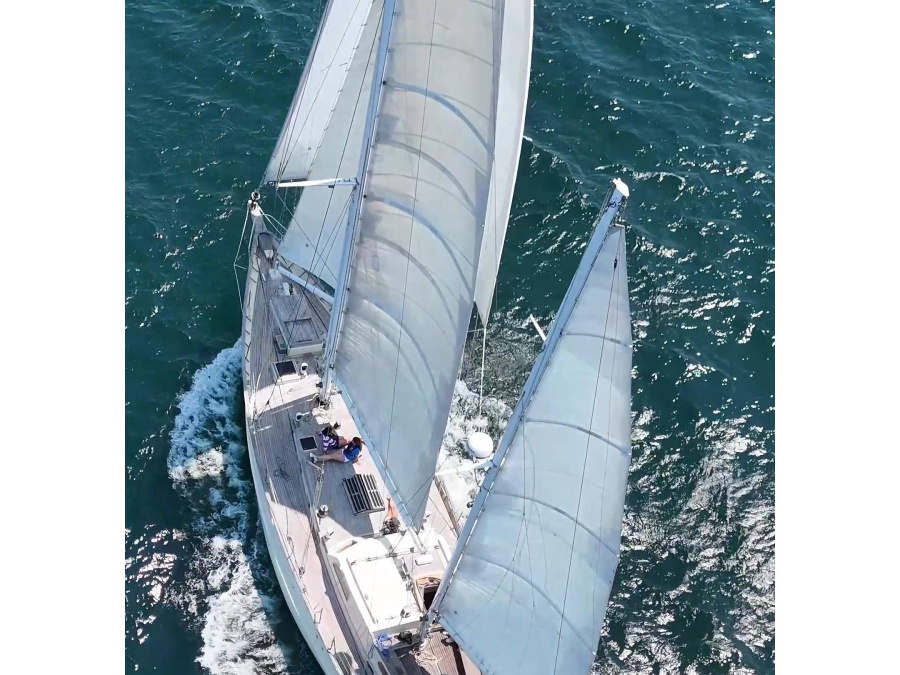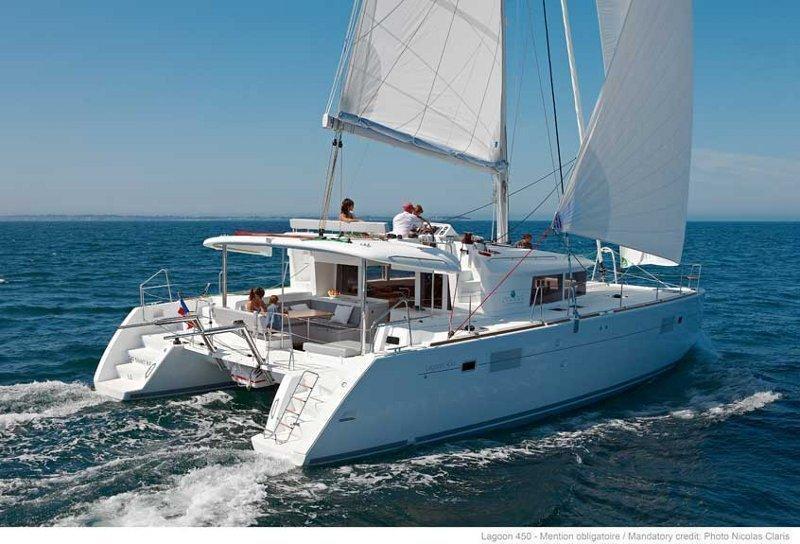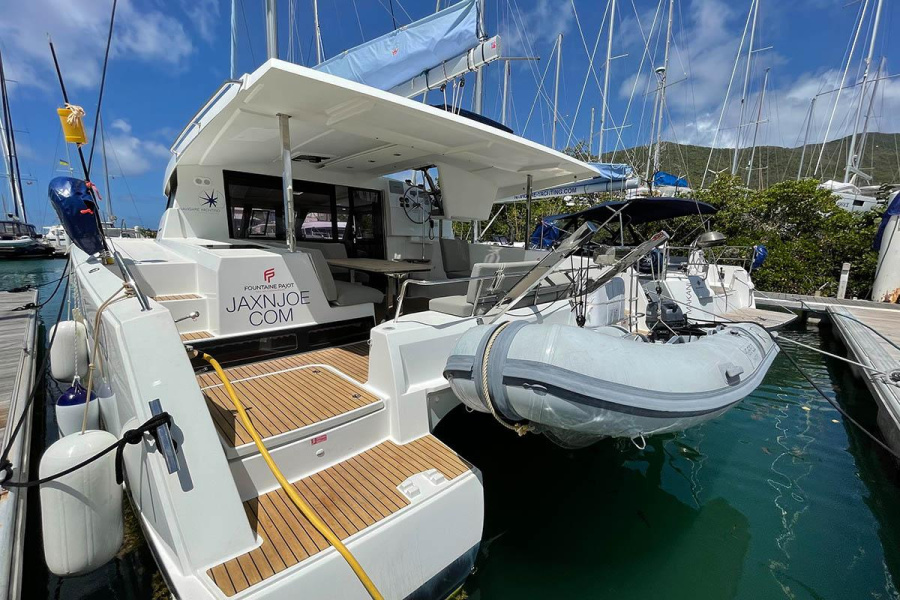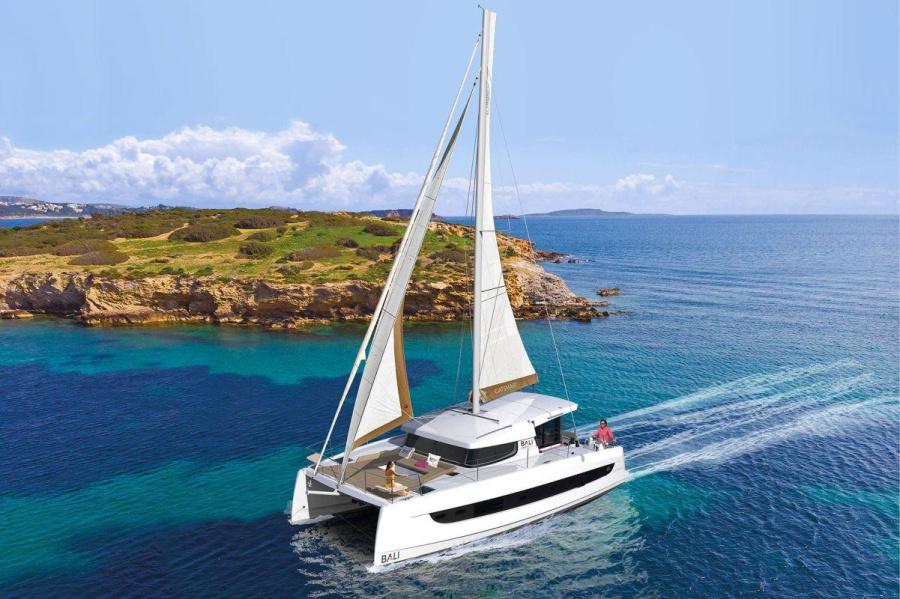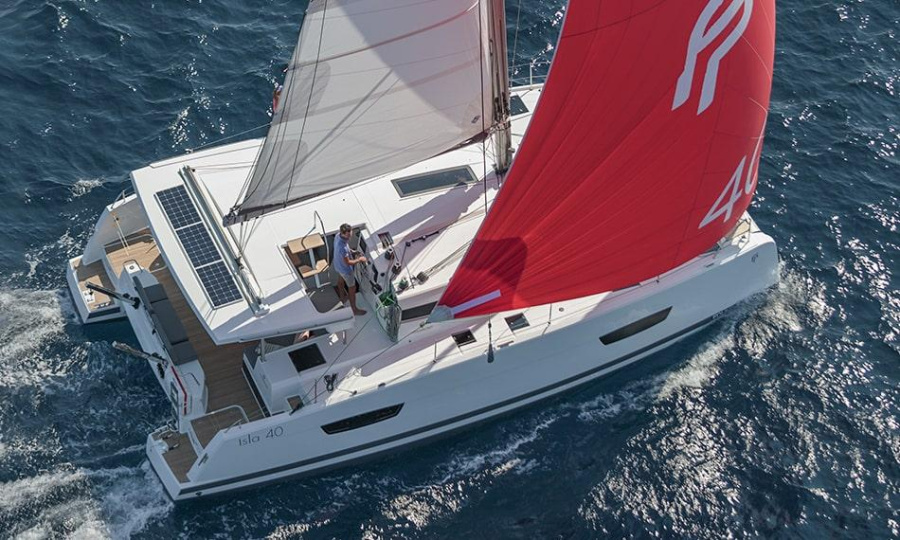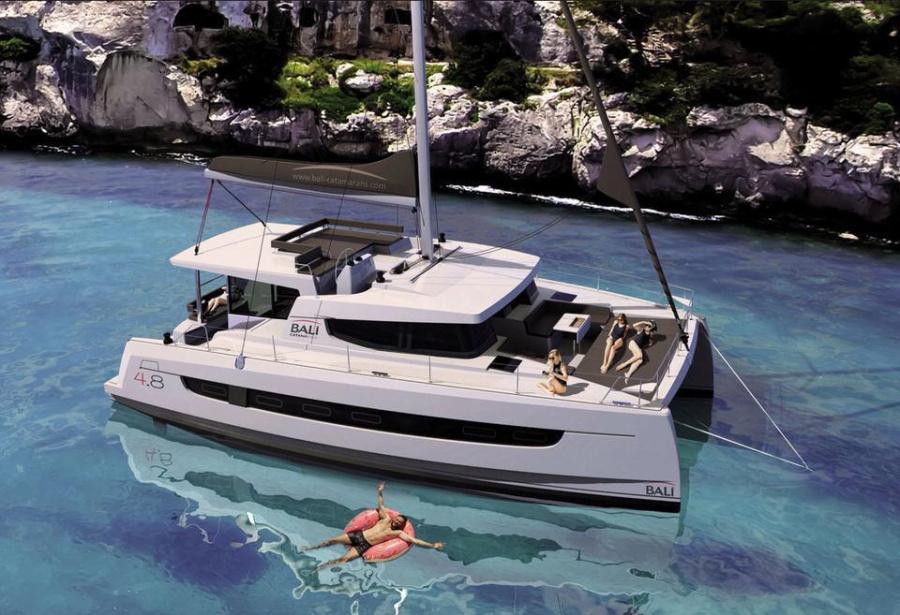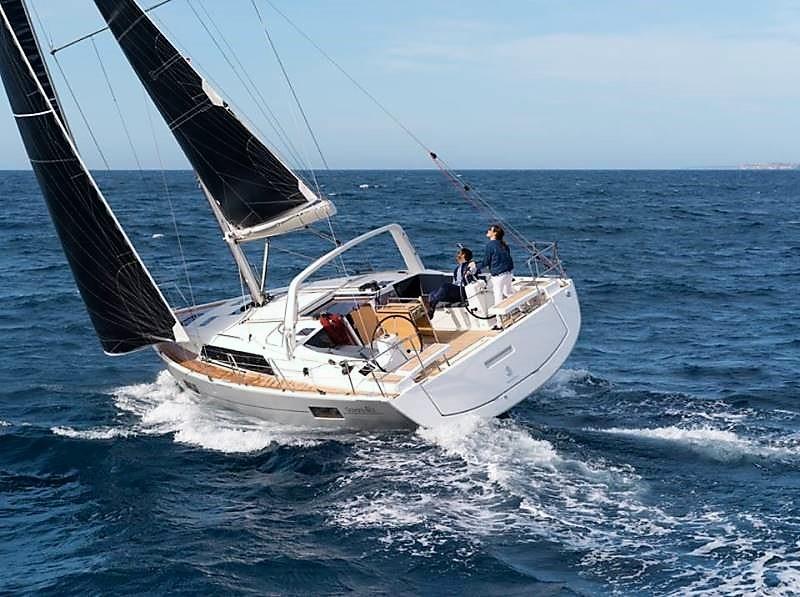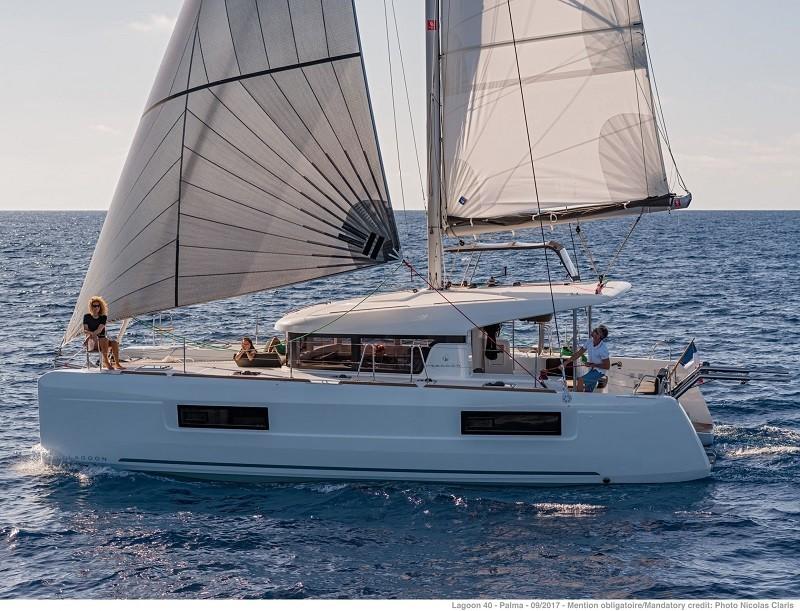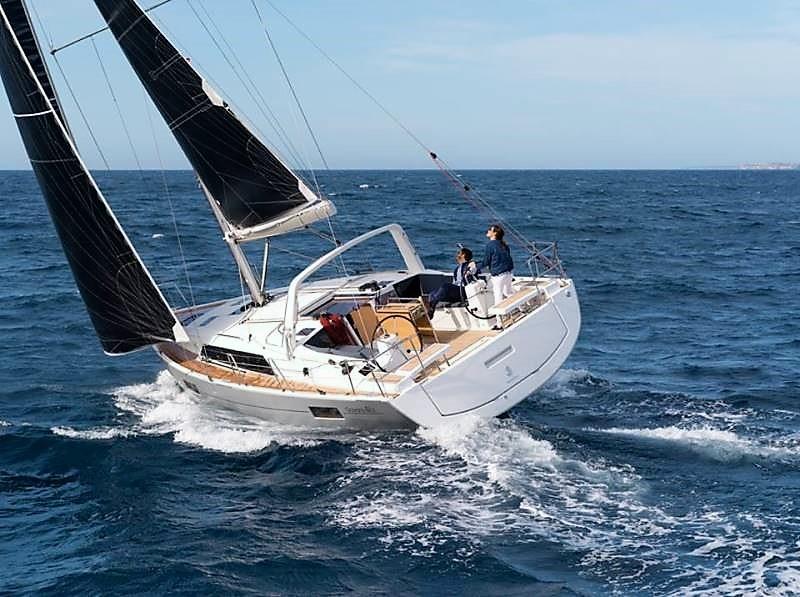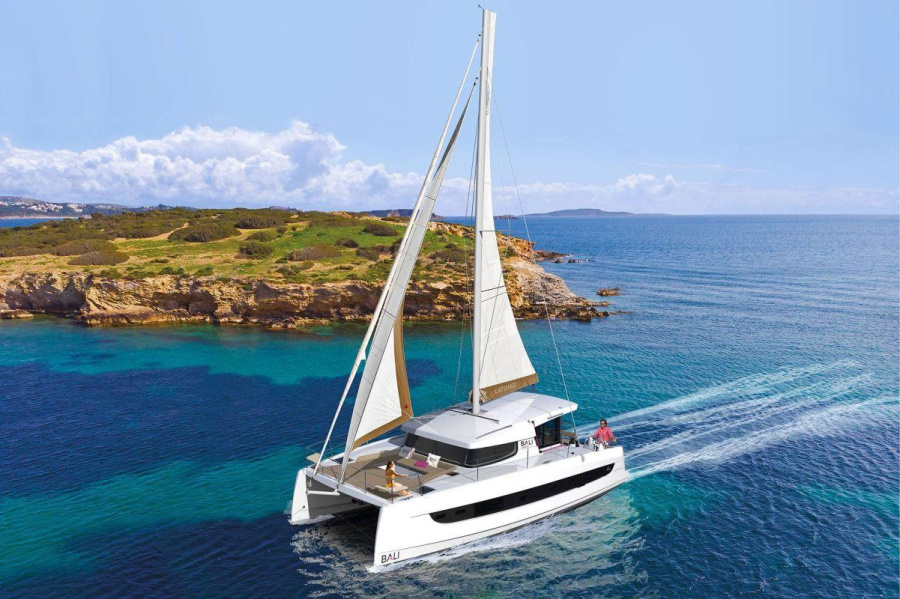Yacht Charter Types
20 August 2025
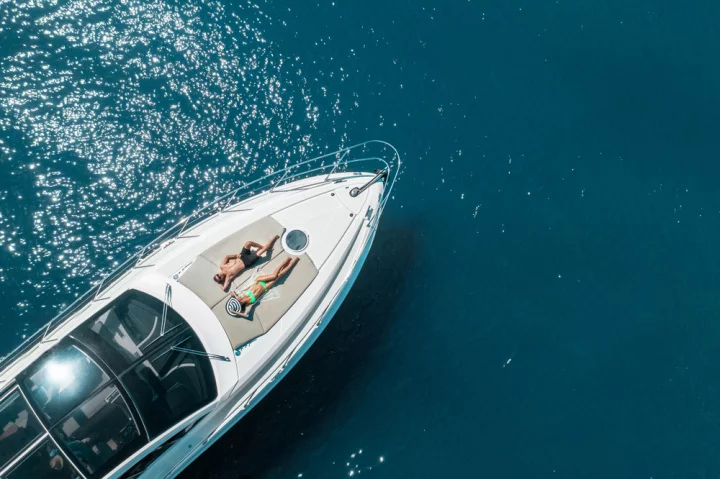
- Yacht Charter Types – What to Expect
- Key Terminology
- General Rule
- Bareboat Charter
- Skippered Charter
- Crewed Charter
- By-the-Cabin (Shared) Charter
- Conclusion
Yacht Charter Types – What to Expect
All yacht charters and boat rentals fall into one of four categories: bareboat, skippered, crewed, and by-the-cabin (shared) charters. Most sailors understand the general differences, but far fewer know the details and what to expect. In this article, we explain each type in detail, compare prices and services, and help you choose the best option for your next sailing vacation.
Key Terminology
- Charterer – an individual or company that rents (charters) a vessel from its owner or managing company for a set period of time. The Charterer signs the agreement, is responsible for payments, and for all guests on board. The Charterer is not the same as the Skipper.
- Skipper – responsible for safe operation, navigation, and overall management of the boat. Equivalent to “captain,” but usually refers to smaller recreational vessels.
- Crew – anyone on board. Normally refers to staff working on the yacht (hostess, cook, deckhand, first mate, etc.), but on smaller vessels under 24 meters, guests are technically listed as part of the crew on the Crew List, even if they are on vacation.
- Hostess – responsible for cleaning the yacht and serving guests snacks and beverages. Often assists the skipper with docking or anchoring. A hostess is not a cook, but may prepare simple meals such as breakfast and lunch.
- Cook (Chef) – responsible for all meals on board and, in some cases, for provisioning during the charter.
- Deckhand – assists the skipper or captain with steering, lines, docking, anchoring, and winches.
- Crew List – official document listing all persons and their roles on board. It must be submitted to port authorities before departure. Any changes (for example, if someone leaves or joins) must be updated and stamped by the harbor master.
- Base Manager – head of technical service on site, responsible for check-in and check-out procedures and technical maintenance of the fleet.
General Rule
Most recreational yachts are registered to carry a maximum of 12 guests.
- Bareboat & Skippered Charters – up to 12 persons total, including crew. Small children count toward this limit.
- Luxury Crewed Charters – maximum 12 guests + crew. Children also count toward the limit.
- By-the-Cabin Charters – up to 40 guests (for small ship cruises). These vessels, usually catamarans, gulets and small ships, hold commercial registration, allowing them to carry more passengers.
Bareboat Charter
This type of charter is similar to renting a car: you operate the boat yourself. If you hold the required sailing license or certificate and have the necessary experience, you can charter a yacht for a set period. Typical boat size: up to 55 feet. Vessels larger than this usually require a professional crew due to the size, complexity and cost.
Requirements for bareboat chater
- Sailing experience – recent (within 2 years) experience on a yacht of similar size and type.
- Sailing resume – a written record of your sailing history as a skipper: locations, boat types, and milage. You can find sailing resume template by creating your personal account on our website. Click here to sign up
- Sailing license – required in many regions (Mediterranean, SE Asia) from organizations such as ASA, US Sailing, RYA, or IYT. Not usually required in the Caribbean or French Polynesia.
- VHF certificate – proof you are qualified to operate a marine radio.
- Experienced crew member – at least one additional experienced person to assist with docking, anchoring, and communication.
Restrictions
- Sailing at night is prohibited unless special approval is obtained from the base manager.
- Limit of 20–25 nautical miles from shore.
- Sailing not permitted in winds above 25–30 knots (Beaufort scale 7).
Responsibilities
The skipper is liable for the safety of the crew and the yacht. Once the check-in list is signed, you assume full responsibility as captain. Damage liability is usually limited to the deposit, but responsibility for the crew rests with the skipper, not the charter company.
Skippered Charter
A step between bareboat and crewed, this option means a bareboat yacht is rented with a professional freelance skipper. Great option if you lack sailing experience, or don’t have license or want to relax without hustle.
What to Expect
- Skippers are usually arranged by the charter company or the base manager from a pool of reliable professionals. In some countries (e.g., Italy), skippers may be hired through third parties due to legal restrictions.
- Contact details are usually provided a few days before your charter, in some cases a couple of weeks in advance. Why? Because last-minute changes may occur and skippers can be reassigned between charters. In addition, professional skippers are often busy working with other clients, so it is usually better to get in touch with them closer to your departure date.
- To ensure the right match, inform the base manager of your preferences: sailing style, anchorages vs. marinas, water sports vs. relaxation, etc. This helps the base manager find a skipper best suited to your profile.
Main duties of the Skipper
- Safety briefing and familiarization with the yacht. In most cases, your acquaintance with the skipper will begin with a safety briefing and familiarization with the boat.
- Navigation and boat handling – In some cases, the skipper may ask some of the crew (guests) to assist with handling lines while docking and undocking, since this often cannot be done by one person alone.
- Passage planning – offers advice and may adjust itineraries depending on conditions. Skippers have good knowledge of the sailing grounds and can give valuable advice and recommendations on the best places to go. Please note that the skipper may suggest significant adjustments to the initial itinerary depending on sailing conditions.
- Weather monitoring – Skipper makes final decisions to ensure safety. Passage planning involves many variables, including weather. Keep in mind that changes to the itinerary may be due to weather conditions that are not always obvious to non-sailors.
Requirements for Guests
- Provide adequate accommodation on board – a separate cabin with access to a shower and bathroom, if these amenities are not within the cabin. In some cases, skippers agree to take small forepeak cabins, but this should be agreed upon beforehand and usually works only for larger catamarans or boats above 46 feet.
- Provide food. The price shown on the website covers skipper services only and excludes food expenses. You have two options:
- a) If you plan to cook on board, include the skipper in meals.
- b) If you plan to dine out, then provide groceries for the skipper or agree on a food allowance so that he or she can eat independently. In most cases, base managers can give you a rough daily estimate.
- Be respectful – skippers are on duty daily, so consider their need for rest even if guests stay up late.
Crewed Charter
The most luxurious sailing vacation option. A permanent crew (at least a captain and hostess/chef) is dedicated to one yacht, ensuring top-level maintenance and service. This comes at a higher cost but offers a fully managed experience. Because the crew lives and works on the yacht, these boats are generally kept in better condition. The captain constantly monitors the vessel, and the crew is on duty 24/7. On the other hand, this level of service comes at a cost, since the owner must cover crew salaries regardless of charter income.
Unlike a skippered charter where you can also hire a hostess or cook as add-ons, crewed charters are offered as a full-service, all-inclusive experience with a different pricing structure.
Pricing
- Boat price. The yacht price usually includes the crew.
- APA. Additional expenses (fuel, food, marinas) are covered by the APA (Advance Provisioning Allowance), typically 25–30% of the charter fee, paid in advance.
- Preference list. About two weeks before departure, you complete a preference sheet for food, drinks, and activities. This allows the crew to prepare everything in advance of your arrival.
- Report. At the end of the charter, the captain provides a detailed report of all expenses covered by the APA. Any unused funds are refunded to you, while any overages must be settled by the Charterer.
Captain’s Authority
- Can adjust itinerary. Please keep in mind that the captain of the yacht is in full command and may adjust the itinerary if safety requires it — for example, to avoid unsafe ports or to ensure timely redelivery of the vessel at the end of the charter period.
- Can restrict activities. With regard to the use of water-sports equipment, the captain has the authority to restrict or deny use if guests are unsafe, behaving irresponsibly, under the influence of alcohol, or failing to show due concern for other persons or property.
By-the-Cabin (Shared) Charter
Increasingly popular with divers and leisure travelers, these charters are run on crewed yachts (often 45–60 ft catamarans or gulets). You book a cabin or berth, sharing the yacht with other guests. It is a good alternative to a skippered charter in terms of cost. You book a cabin or a berth, which means you pay roughly 1/4 of the regular charter price.
What to Expect
- Fixed itinerary – The sailing route is predefined and cannot be changed by individual guests. The itinerary described on the website is only an example and may be adjusted by the skipper without prior notice, usually due to weather conditions.
- Meals on board. Cabin charters usually include breakfast, lunch, and sometimes dinner. Do not expect gourmet cuisine; if you would like to enjoy local specialties, we recommend planning to dine ashore in local restaurants.
- Day passages – sailing is typically during the day, with nights spent in port or at anchor. Overnight at anchor does not mean you cannot go ashore — simply ask the skipper, and he will bring you to shore and back by dinghy.
Restrictions
- Alcohol. Guests cannot bring their own alcohol; drinks are purchased onboard.
- Water toys. Limited water toys (often just 1 kayak and 1 SUP). Bring your own snorkel gear.
- AC. Air conditioning runs only a few hours in the evening (generators are too noisy at night).
- Age restrictions apply; children under 6–12 are usually not permitted.
- Most cabins are limited to 2 guests each, per safety regulations.
Below you may find table with Price Comparison for all foru charter types on Bali 5.4 Catamaran (2024), in BVI for one week in November 15–23, 2025.
Total Cost for 1 week in BVI on board of Bali 5.4:
- $5,236 - for 2 people in one cabin
- $19,381 - for bareboat charter
- $21,915 - for skippered charer
- $32,286 - for crewed charter
| Charter Type | By the Cabin | Bareboat | Skippered | Crewed |
|---|---|---|---|---|
| Boat / Cabin Price | $4,566 | $15,870 | $15,870 | $21,422 |
| Cleaning & Insurance | – | $981 | $981 | $935 |
| Skipper | – | – | $2,534 | $2,128 |
| Hostess | – | – | – | $1,960 |
| APA | – | – | – | $5,841 |
| Onboard Cash Box | $670 | – | – | – |
| Fuel | included | $500 | $500 | from APA |
| Moorings | included | $350 | $350 | from APA |
| Provisioning | included | $1,680 | $1,680 | from APA |
| Total Cost: | $5,236 | $19,381 | $21,915 | $32,286 |
Conclusion
Choosing the right type of charter depends on your sailing skills, desired level of service, and budget. Whether you want the independence of a bareboat, the guidance of a skipper, the luxury of a crewed yacht, or the affordability of a shared cabin, understanding the differences ensures your sailing vacation meets your expectations.
